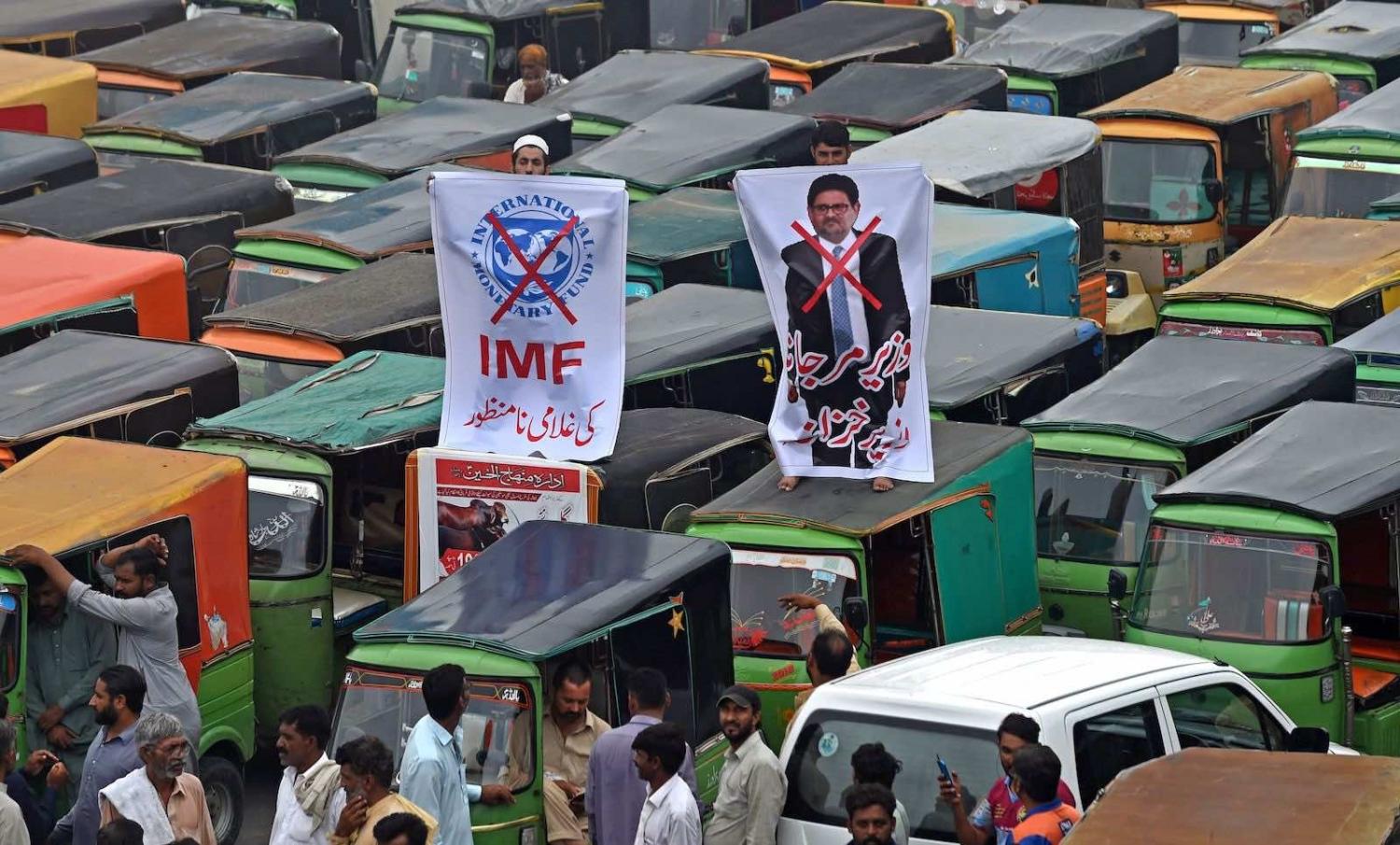Pakistan is showing similar symptoms to those of Sri Lanka if economic and political challenges the country faces are seen in perspective.
Sri Lanka is currently engulfed in crisis, amid a multi-billion dollar debt default and double-digit inflation. Many people on the island nation are reeling with power blackouts and fuel shortages. Concern over food and other essentials is growing. There is a shortage of foreign exchange. Anti-government protesters stormed the official residence of Sri Lanka’s president and prime minister, forcing both leaders to announce their resignations. Sri Lanka is currently in talks with the International Monetary Fund for a rescue package – but this too is in jeopardy as the country grapples with its worst economic crisis since independence in 1948.
Pakistan isn’t consumed by the same raging turmoil at present but the parallels to the experience in Sri Lanka are readily apparent. Debt default is likewise a prospect as Pakistan struggles to meet its balance of payments, with billions owed to international creditors. The depleting foreign exchange reserves, falling rupee against the US dollar, plus widening trade and current account deficits are a burden for the coalition government led by Prime Minister Shehbaz Sharif. The government has likewise turned to the IMF for a bailout, seeking to revive a US$6 billion loan deal signed by former prime minister Imran Khan – who ironically enough urged widespread street protests in April in what proved an unsuccessful bid to stave off a no-confidence vote in the parliament.
Like Sri Lanka, Pakistan also relies on the import of many essential items, including fuel and cooking oil, so needs sufficient foreign exchange reserves to ensure supply. At the end of last month, Pakistan’s central bank held only enough reserves for roughly six weeks of required imports.
The public is rapidly losing its temper and could take to the streets any time against the government’s unpopular steps taken under IMF direction.
Under IMF demands, the Sharif government has rolled back fuel subsidies that had been provided under Khan. This, combined with the global rise in oil prices following Russia’s invasion of Ukraine, has seen petrol costs skyrocket. The price of cooking oil has also increased by 40 per cent in the past two months.
On the political front, a blame game continues unabated over the state of the economy. The present government accuses the former Pakistan Tehreek-I-Insaf government of creating an economic mess. In the weeks before he was ousted in April, Khan had avoided taking unpopular decisions under IMF pressure. He did not raise fuel prices, increase taxes, or remove subsidies, as the IMF wanted, delaying the inflow of external finance that weakened foreign exchange reserves and put pressure on the rupee.
Still, several months on and as much of the world is finding, inflation hasn’t eased – indeed, in Pakistan the rate has stretched beyond 21 per cent, the highest level in 14 years. The public is rapidly losing its temper and could take to the streets any time against the government’s unpopular steps taken under IMF direction. Khan, for his part, is continuing to agitate and call for mass protests against the present government, labelling it “imported and corrupt”.
Fair then to say that the situation is combustible. The most immediate challenge for Pakistan on the political front is to maintain stability to avert bankruptcy. The present government, which has found it difficult to satisfy the IMF, is politically weak with a slim majority of support in parliament. The government is however believed to enjoy the support of the country’s powerful military establishment.
While Khan demands fresh elections, the ruling coalition government wants to carry out economic reforms before a national ballot is due in August next year. Sustained reform will be difficult. Anger towards the government is growing about the discomfort caused by the fuel price hike, soaring commodity prices and hours-long power blackouts in the summer months.
Add to this longstanding and widespread complaints in Pakistan about official graft and government malfeasance, and it is no great stretch to look to Sri Lanka’s recent experience as a warning sign. What landed the island nation in troubled waters was widespread corruption, abuse of power and poor management of the economy by the ruling elite. Have those with power in Pakistan learnt anything from Sri Lanka's episode? Unfortunately, signs are not encouraging.

